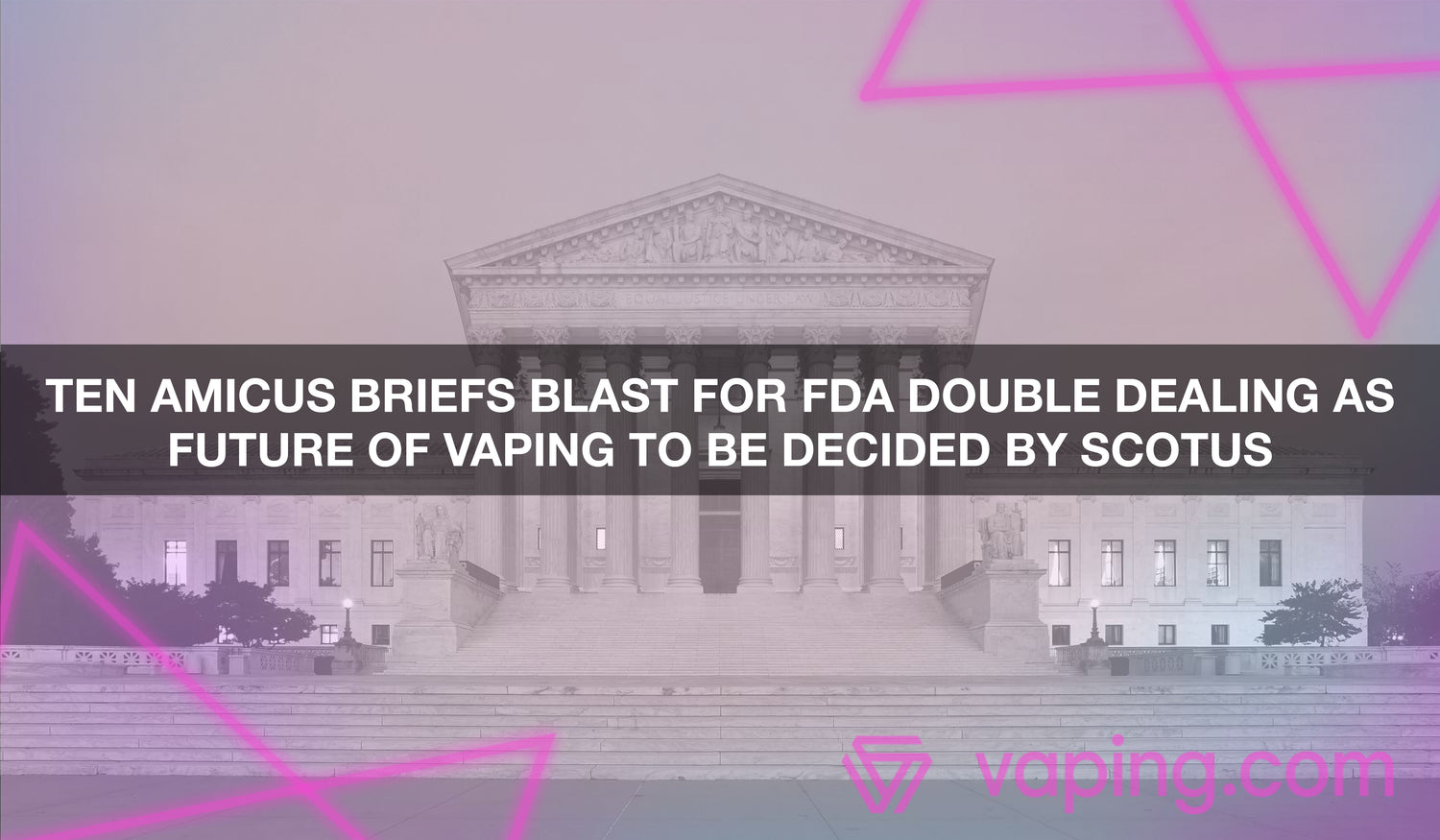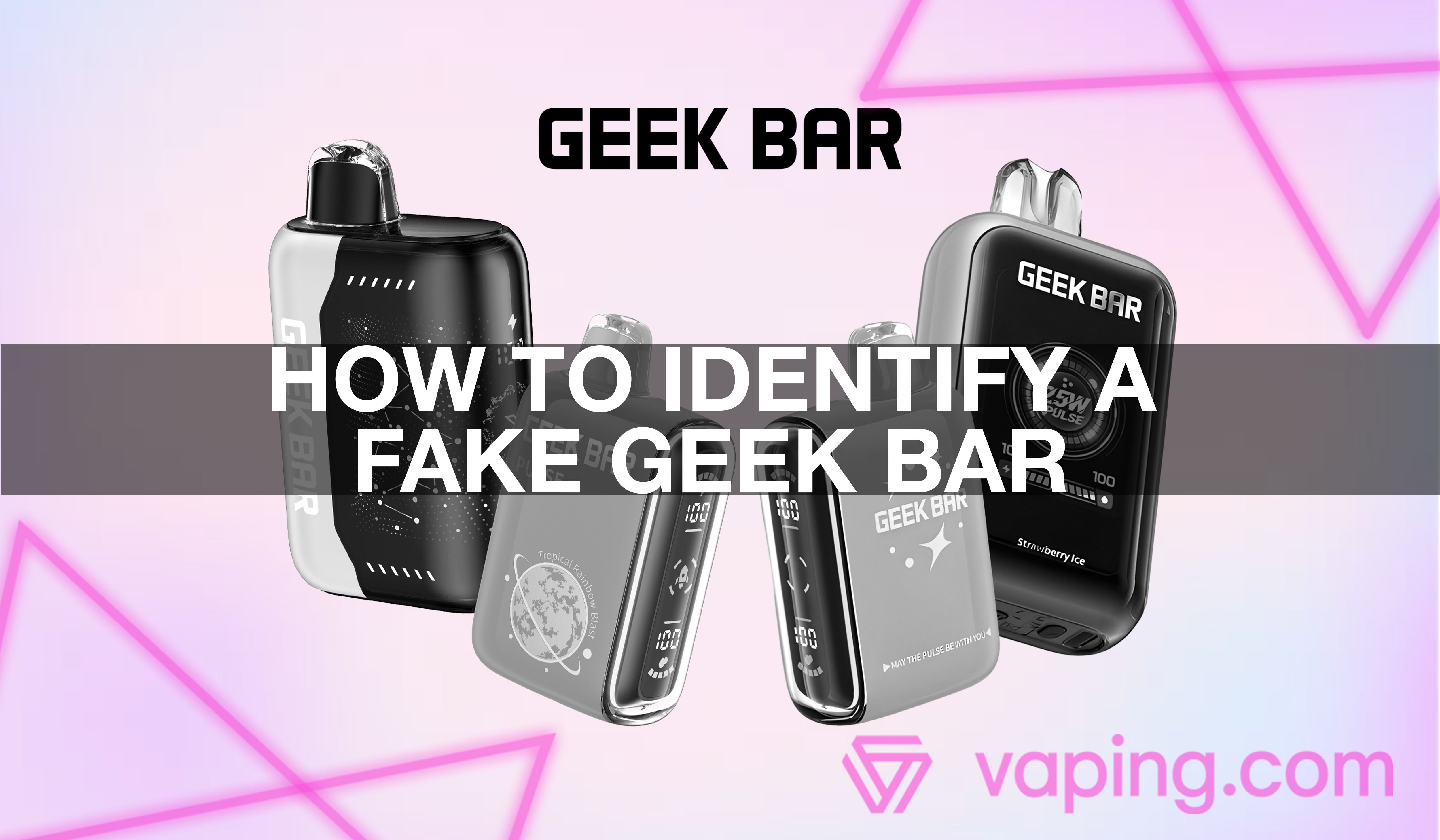Ten briefs blasting the FDA's failed regulatory PMTA scheme have been filed with the Supreme Court, as the fate of vaping hangs in the balance.
FDA v. Triton
The U.S. Supreme Court has officially agreed to hear a crucial case regarding the FDA’s regulation of vaping products, a decision that could significantly impact the future of the vapor industry.
Food and Drug Administration, Petitioner v. Wages and White Lion Investments, L.L.C., dba Triton Distribution, et al
The case centers on the FDA's failed Premarket Tobacco Authorization scheme and the millions of marketing denial orders (MDOs) issued to virtually every vaping company. They blocked virtually every product on the market save for a number of expensive products manufactured by the tobacco industry. The FDA specifically targeted the flavored vapes preferred by most adult vapor consumers.
The vapor industry argues that the proposed measures are too restrictive and detrimental to initiatives aimed at helping adult smokers transition from combustible cigarettes.
The Supreme Court is set to tackle the key issue of vaping regulation, aiming to balance public health concerns with the demand for alternatives to traditional tobacco products.
What is an Amicus Curiae Brief?
An amicus curiae brief, often referred to as a "friend of the court" brief, is a document filed in a court case by non-litigants with a strong interest in the subject matter. These briefs are submitted by individuals, organizations, or entities that are not directly involved in the case but have expertise or valuable perspectives that might assist the court in making its decision.
The purpose of an amicus curiae brief is to offer additional information, arguments, or insights that the court may find useful but would not otherwise consider. In the context of the vaping regulation case, these briefs provide diverse viewpoints and expert opinions that highlight the broader implications of the court's potential ruling on public health and the vapor industry.
Ten Amicus Curiae Briefs Blast FDA and Only Three in Favor
Below are links to ten amicus curiae briefs criticizing the failed PMTA scheme and the FDA’s fatally flawed regulatory framework for vaping products.
- RJ Reynolds
- Vaping Industry Stakeholders
- Washington Legal Foundation
- Coalition of Manufacturers of Smoking Alternatives
- Logic Technology Development LLC
- Electronic Nicotine Delivery System Trade Associations and Small Businesses
- Vapor Technology Association
- Thirteen Members of Congress & The ACLJ
- Taxpayers Protection Alliance
- Goldwater Institute
Concerns About Current FDA Regulatory Scheme
- Harm Reduction: Vaping has been shown to be a significantly less harmful alternative to smoking. The briefs underscore research, including from Public Health England, that vaping is 95% less harmful than smoking combustible tobacco. These stakeholders argue that the FDA's regulations could drive adult smokers back to traditional cigarettes, which carry far greater health risks.
- FDA's inconsistent application of its regulatory authority has resulted in arbitrary marketing denials, overlooking the potential public health benefits of vaping.
- Economic Impact: The vaping industry is a multi-billion-dollar sector that creates jobs and drives innovations in harm reduction. The briefs argue that strict regulation could undermine this progress, particularly hurting small businesses.
- PMTA process favored the tobacco industry entrants as they have the legal firepower to navigate the changing criteria, and benefit from a ban on flavored vaping products- other than menthol.
- Switching from smoking to vaping may enhance health outcomes for millions of adult smokers, and several briefs urge the Court to consider this evidence when assessing the FDA’s decisions.
What Happens Next?
Now that the Supreme Court has agreed to hear the case, oral arguments will be scheduled, and the justices will have the opportunity to weigh the arguments from both sides. The decision could have far-reaching implications for the vaping industry, public health policy, and future FDA regulatory actions.
The presence of 10 amicus curiae briefs advocating for the vapor industry underscores the growing awareness that vaping plays a critical role in harm reduction for smokers. As the Supreme Court prepares to take on this landmark case, millions of adult smokers, industry stakeholders, and public health advocates are eagerly awaiting the outcome.
Our Verdict
This case marks a pivotal moment for vaping regulations in the U.S., with the Supreme Court's decision poised to impact the vapor industry and public health initiatives aimed at reducing smoking-related harm. The justices will have access to extensive legal and scientific insights from amicus curiae briefs as they deliberate on vaping's future. We must hope the court recognizes that the FDA is in a state of near regulatory capture at this point, as special interests and a tobacco industry with skin in the game have greatly skewed the market for smoke and ash free nicotine alternatives.






Leave a comment
This site is protected by hCaptcha and the hCaptcha Privacy Policy and Terms of Service apply.